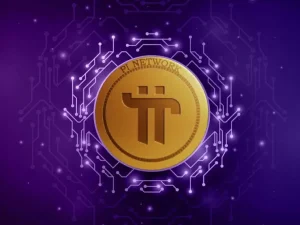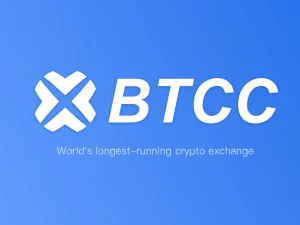Bitcoin Smart Contracts: Explained & How They Work

Contrary to popular belief, Bitcoin’s blockchain is highly programmable and capable of executing smart contracts. In fact, nearly every transaction on the Bitcoin blockchain can be viewed as a smart contract in action. This functionality allows for a wide range of possibilities, from securing transactions to enabling complex financial agreements.
The key difference between Bitcoin and smart contract-focused platforms like Ethereum lies in the types of programmability they support. Ethereum, with its Turing-complete scripting language, offers more flexibility and complexity for smart contracts. However, Bitcoin’s simpler yet robust scripting language enables the execution of crucial smart contracts, making it a powerful tool in its own right.
- Smart Contract: Definition & Basics
- Turing-Completeness Explained in Simple Terms
- Bitcoin & Smart Contracts: Powerful Synergy Explained
- Bitcoin Smart Contracts: Evolution & History
- Bitcoin Smart Contracts: Types & Optimization
- Bitcoin Scripting: Language & Essentials
- Bitcoin Lightning Network: Ultimate Guide
- Sidechains Tech
- Crafting Secure Smart Contracts on Bitcoin Network
Smart Contract: Definition & Basics
For instance, a smart contract could be programmed to automatically transfer bitcoin from one user to another after a predetermined time delay, ensuring swift and secure transactions. However, the complexity of smart contracts is not limited to such straightforward applications. They can incorporate intricate conditional criteria, tailored to meet the specific needs of a wide range of applications. Alternatively, they can be as straightforward as requiring a digital signature to facilitate a monetary exchange.
To fully comprehend the intricacies of smart contracts, it is imperative to understand their fundamental nature as programs recorded on a blockchain’s digital ledger. Numerous blockchains incorporate a scripting language to support these programs, enabling them to function as intended. In certain scenarios, transactions conducted on the blockchain incorporate logic that dictates their processing, while in others, dedicated programs are deployed on the blockchain, allowing users to interact with them to execute specific functionalities.
Both these manifestations represent examples of smart contracts, embodying their versatility and adaptability. The utility of smart contracts lies in their inherent advantages, stemming from the blockchain’s digital ledger. Operating on a decentralized infrastructure, smart contracts are resilient and protected from various types of attacks, ensuring the integrity and security of transactions. Additionally, they are recorded on an Immutable digital ledger, making them transparent and accessible to all participants.
Turing-Completeness Explained in Simple Terms
In the realm of smart contracts, Turing completeness stands as a pivotal concept. Named in honor of the brilliant Alan Turing, it encapsulates the fundamental capabilities of a programming language and its execution environment. At its core, Turing-completeness denotes a programming language’s ability to execute any algorithm or solve any computational problem, given sufficient resources such as time and memory.
This profound characteristic is a hallmark of most modern programming languages. The essence of Turing-completeness lies in its versatility and universality; any program written in one Turing-complete language can potentially be replicated in another. However, when it comes to smart contracts, the debate surrounding Turing-completeness intensifies.
The question arises: Does a smart contract language necessitate Turing-completeness? Proponents argue that Ethereum and its ilk, renowned as smart contract platforms, owe their prowess to their Turing-complete nature. In contrast, Bitcoin, though programmable, lacks this defining attribute. This divergence stems from the fact that Bitcoin transactions, while customizable, do not possess the computational power and flexibility of Turing-complete languages.
Bitcoin & Smart Contracts: Powerful Synergy Explained
In the Bitcoin ecosystem, every transaction is essentially a smart contract. The criteria that dictate the spending of bitcoins is known as the scriptPubKey or locking script. Conversely, the data and script that satisfy these criteria are termed the ScriptSig or ScriptWitness, depending on whether the input leverages SegWit technology. This flexibility and programmability are crucial in making Bitcoin transactions highly customizable and secure.
Bitcoin’s smart contract capabilities are further enhanced by various mechanisms. Its built-in scripting language provides a solid foundation for creating complex transaction logic. The Lightning Network, an off-chain scaling solution, enables faster and cheaper smart contract executions. Discreet Log Contracts offer privacy-enhancing features, while sidechains enable interoperability with other blockchains.
Bitcoin Smart Contracts: Evolution & History
Bitcoin, initially conceived as a peer-to-peer electronic cash system, has transformed into a platform that enables the creation and execution of sophisticated smart contracts. While its scripting capabilities were initially seen as a mere add-on, the community quickly realized the immense potential of Bitcoin’s scripting language. This led to the exploration and development of various types of smart contracts, revolutionizing the way transactions are conducted on the blockchain.
The journey of Bitcoin smart contracts began with the emergence of multi-signature setups. These allowed transactions to be signed by multiple parties, ensuring greater security and trust. However, it was the introduction of Pay-to-Script-Hash (P2SH) in 2012 that marked a significant milestone in Bitcoin’s smart contract evolution. P2SH enabled transactions to be made to scripts whose conditions were only revealed when the transaction was redeemed, greatly enhancing the flexibility and complexity of smart contracts on the Bitcoin network.
Since then, the Bitcoin community has continued to push the boundaries of smart contract capabilities. The Taproot upgrade, activated in November 2021, introduced Schnorr signatures and Merkelized Abstract Syntax Trees (MAST), further enhancing the privacy, efficiency, and complexity of Bitcoin smart contracts. These advancements allow for more complex and secure transactions, enabling new use cases and applications to be built on the Bitcoin blockchain.
The history of Bitcoin smart contracts is a testament to the adaptive nature of the Bitcoin protocol and the dedication of the community to exploring the balance between innovation, security, and scalability. As the Bitcoin network continues to evolve, we expect to see even more advancements in smart contract technology, driving new levels of innovation and value creation in the decentralized economy.
Bitcoin Smart Contracts: Types & Optimization
At a technical level, P2PKH scripts impose a stringent requirement: to spend Bitcoin sent via this script, a user must provide an ECDSA signature that precisely matches the public key whose hash is embedded in the script. This signature serves as the ultimate proof of ownership, authenticating the transaction and safeguarding the funds.
The CORE strength of P2PKH lies in its ability to tie the Bitcoin ownership directly to the private key holder. Since only the owner of the private key can generate a valid signature matching the public key hash, the Bitcoin remain securely under their control. This makes P2PKH an excellent choice for secure Bitcoin transactions, ensuring that funds are accessible only to the intended recipient.
Bitcoin Scripting: Language & Essentials
The Bitcoin protocol boasts a built-in scripting language, commonly referred to as Script, that serves as the backbone for defining the rules governing the spending of coins within the Bitcoin ecosystem. This language is a crucial component in enabling Bitcoin users to create smart contracts that govern the conditions for the transfer of value.
Script empowers users to set specific conditions that must be met for a Bitcoin output to be spent. For instance, a transaction may require multiple signatures from different wallets or the expiration of a timelock before the funds can be released. These conditions provide flexibility and security, ensuring that funds are only transferred when agreed-upon terms are satisfied.
One of the key aspects of Script is its limited functionality. While it is a powerful tool, it is not Turing-complete, meaning it lacks support for certain complex programming constructs like loops. This limitation helps protect the Bitcoin network from denial-of-service (DoS) attacks, as it prevents the execution of potentially malicious scripts that could consume excessive computational resources.
Despite its limitations, Script supports a range of smart contract functionality that is integral to the Bitcoin system. Some of the key types of smart contracts supported by Bitcoin include:
- Pay-to-Public-Key-Hash (P2PKH): This ensures that only the intended recipient of a transaction can spend the Bitcoin it contains, providing a secure and verifiable way to transfer funds.
- Multi-Signature Scripts: These require signatures from multiple wallets to release funds, enabling collaborative control over the spending of Bitcoin.
- Time-Locked Bitcoin Transactions: These prevent Bitcoin in a transaction from being spent until a specific period has elapsed, offering a delayed release mechanism for funds.
- Pay-to-Script-Hash (P2SH): By sending Bitcoin to the hash of a script, this type of transaction improves efficiency and privacy, as the actual script is not revealed on the blockchain.
Bitcoin Lightning Network: Ultimate Guide
One such game-changing protocol is the , a Layer 2 solution that elevates Bitcoin’s capabilities to new heights. The Lightning Network allows nodes on the Bitcoin blockchain to establish direct communication channels, enabling them to conduct an unlimited number of transactions off the main chain. This innovative approach significantly reduces transaction fees, enhances transaction speed, and opens up a world of possibilities for Bitcoin users.
The key to the Lightning Network’s success lies in its ability to handle transactions off-chain while still maintaining the security and immutability of the Bitcoin blockchain. When nodes open a Lightning Channel, they create a secure payment path between them, allowing for rapid and efficient value exchange. These transactions remain off-chain, reducing congestion on the Bitcoin blockchain and increasing overall scalability.
Moreover, the Lightning Network’s integration with smart contracts further extends its functionality. Specifically, forwarding payments through a Lightning Channel requires the use of a Hashed Time-Locked Contract (HTLC). This smart contract ensures that funds are securely transferred from one node to another while maintaining the integrity of the payment path. By leveraging the power of smart contracts, the Lightning Network not only enables faster and cheaper transactions but also introduces new opportunities for decentralized applications and services.
Sidechains Tech
Bitcoin blockchain, once the sole pioneer, has evolved alongside the emergence of numerous sidechains. These additional blockchains offer integration opportunities, harnessing the power of decentralized technology to deliver unprecedented benefits. enhance the scalability, interoperability, and overall functionality of the blockchain ecosystem, driving innovation and adoption.
Crafting Secure Smart Contracts on Bitcoin Network
Unlock the power of Bitcoin with sophisticated smart contract capabilities. On the Bitcoin network, every transaction is inherently a smart contract, ensuring the security of Bitcoins through a script that restricts access to only the intended recipient. However, Bitcoin’s smart contract potential extends far beyond this basic functionality. While the Script language isn’t Turing-complete, it boasts remarkable capabilities without the need for loops. By leveraging the Lightning Network and other Layer 2 protocols, the Bitcoin protocol is enhanced, exponentially broadening the realm of possibilities for smart contracts. Explore the cutting-edge world of Bitcoin smart contracts and discover how they can revolutionize your transactions and business operations.
Please be aware that all investments involve risk, including the potential loss of part or all of your invested capital. Past performance is not indicative of future results. You should ensure that you fully understand the risks involved and consider seeking independent professional advice suited to your individual circumstances before making any decision.
For any inquiries or feedback regarding this article, please contact us at: [email protected]
















